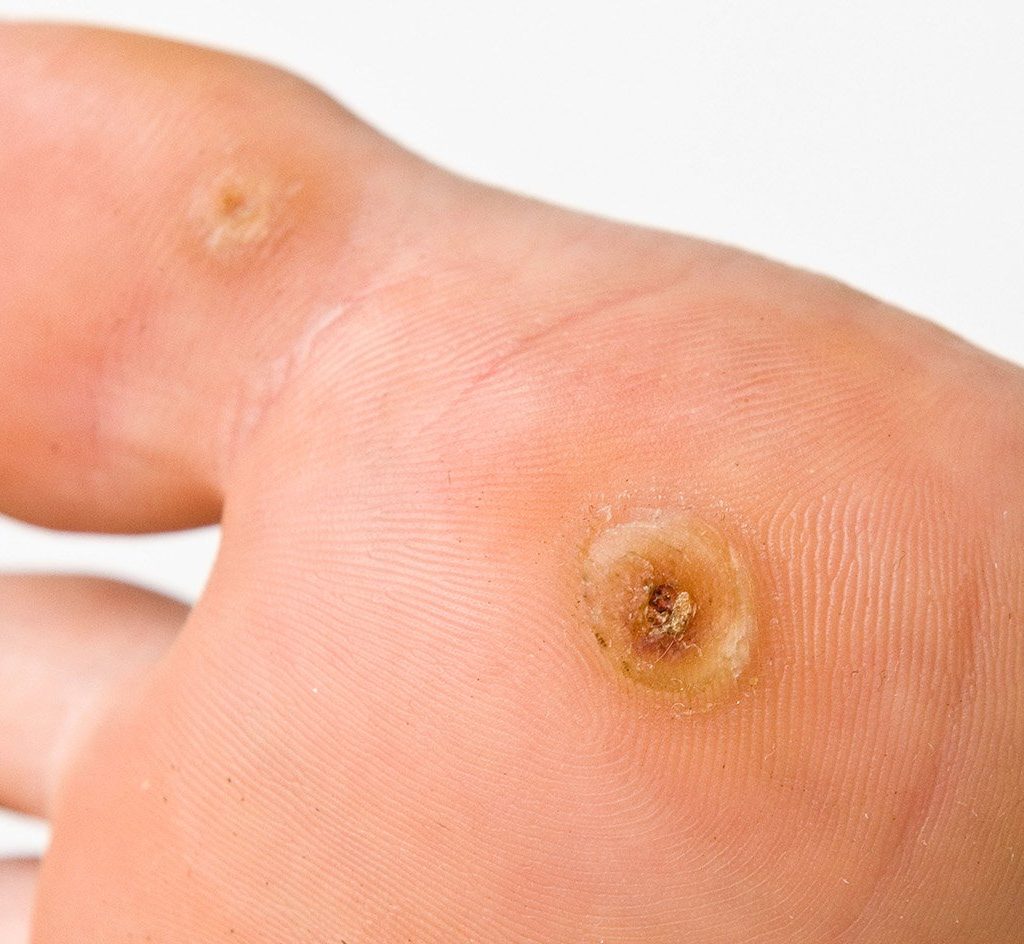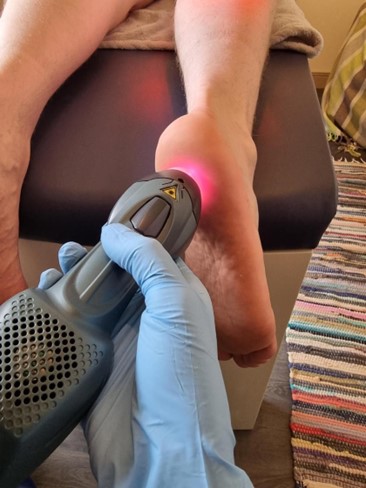Welcome back to another mini series! This time, we’re discussing another popular question we get asked in our clinics: what is a verruca?
Now that the summer months are here (yippee!), the number of patients seeking treatment for verrucas are beginning to rise. So, over the coming weeks, we’ll be giving you all the information you need to know on what exactly a verruca is and how to lower your risk of getting them. We’ll also be sharing our top tips on how to treat them to help keep your feet looking and feeling great this summer.
So, what is a verruca?
A verruca is a wart on the foot that’s caused by the Human Papilloma Virus (HPV): a super common virus that most people will have at some point in their lives. HPV is often asymptomatic, unproblematic, and disappears on its own without treatment. However, it sometimes leads to growths – like warts or verrucas. It can easily enter the sole of the foot through broken skin, making HPV highly contagious, and verrucas very common.
Verrucas are small, rough lumps that can vary in size: from the size of a tiny pinprick to 1cm more or more. They’re often white or have a yellow tinge. You can often spot the telltale sign of a verruca by their ‘cauliflower’ appearance, and the tiny dots of dried blood capillaries that can be spotted at their centre. Sometimes, a chiropodist may refer to them as a ‘plantar wart.’
Are verrucas painful?
Commonly appearing on areas of larger pressure, like the balls of the feet, or the heels, means that verrucas can indeed feel painful. Our patients often say that the pain feels like ‘standing on a needle’.

Can verrucas spread?
Yes – verrucas can actually spread fairly quickly if they’re left untreated. Because verrucas can be very itchy, patients often can’t resist the urge to scratch them. This can lead to the spread of the infection which causes a cluster of warts (known as ‘mosaic warts’). These are harder to get rid of and often cause more pain as the infected area becomes larger.
It’s also really easy to infect other people if you have a verruca. The infection spreads by skin-to-skin contact, as well as via contaminated surfaces. So as you can imagine, places like swimming pools and communal changing rooms are real hotspots for picking up the virus. What’s more, if your skin is damaged or damp, you’re even more susceptible.
How do I prevent verrucas?
Great question! Next week, we’ll be sharing our top tips with you on how you can minimise the risk. Look out for our new post on Friday!
Need to book in for our verruca treatments?
Give us a call today on 01226 759 660 or contact us here to book your appointment.



